My five year old split the back of her head open this week.
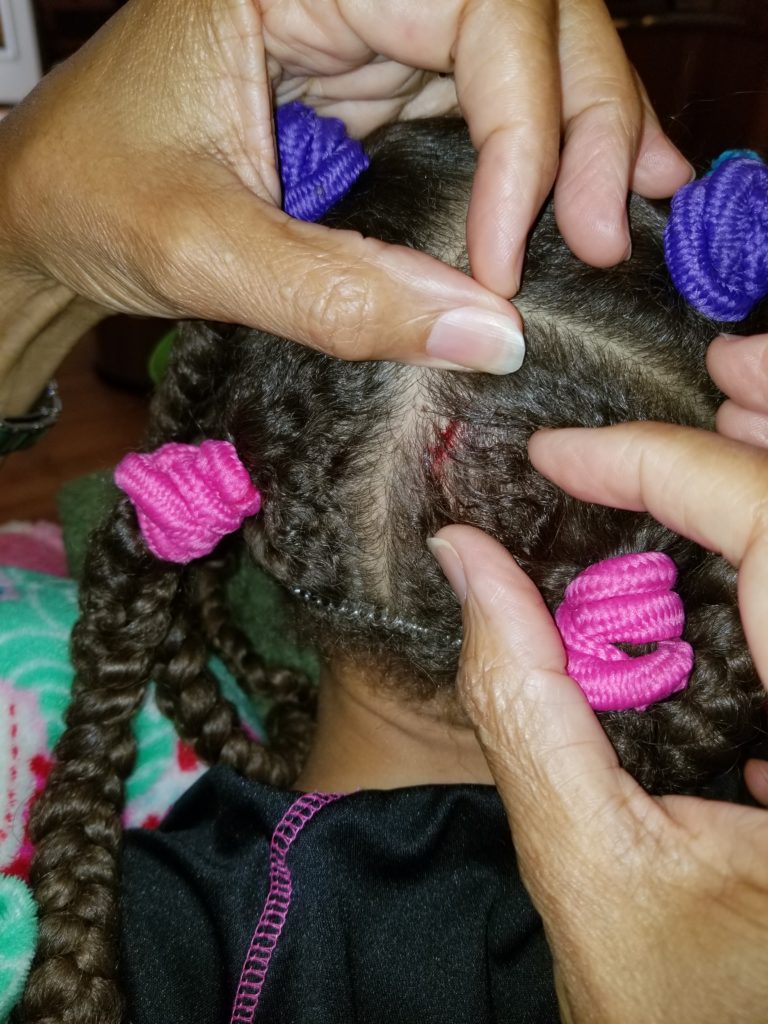
This was a classic example of the beating the youngest child in the family takes when her siblings are more than a couple of years older. I didn’t witness the incident: I was at work. So I’ll describe the situation as I understand it happened…
The kids were reciting a poem of some sort that was posted on the wall. The littlest one couldn’t see it well, so she stood up on a chair to get closer. When she started to complain that she still couldn’t see it, her brother decided to help her out and move the chair closer. Fast. Of course, that meant that as he yanked the chair forward, she didn’t move with it and fell over backward into the table.
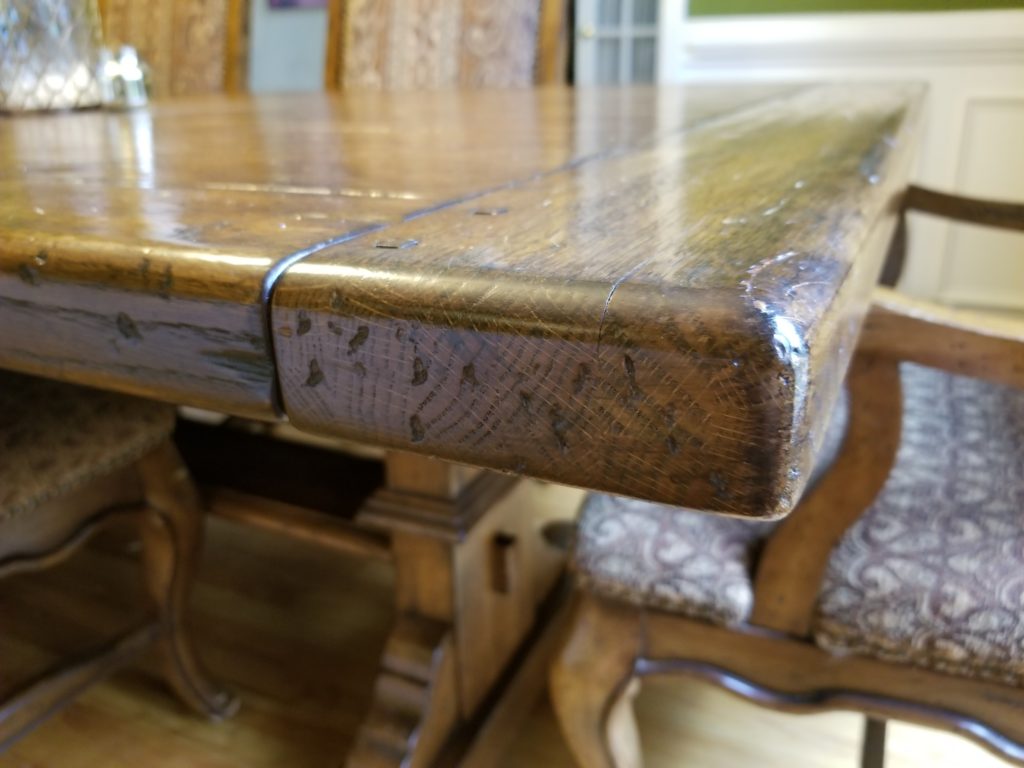
A flurry of activity ensued, complete with crying and chaos. Their teacher immediately applied first aid to the head wound and called for my husband, who fortunately was working from home that day. I received a phone call from him just as I was completing one surgery and waiting for the next to begin. That prompted a volley of phone calls back and forth from me to him to the charge nurse at my office determine if she could be seen by the pediatrician. When it was determined that she’d have to go to urgent care to close her laceration, he loaded her up in the car and started driving.

The chariot..
Picture it: I’m in the operating room when I get the phone call that my baby is bleeding and may need stitches. I’m envisioning the excessive bleeding that comes from head wounds and the hysterics that were surely happening at the time. I think any mom that works outside of the home will agree with me on this statement: When you are at work and your child is hurt and you can’t leave, you feel like you might actually split yourself in two and simultaneously run out the door and stay and do your job. It’s almost an out-of-body experience.
So what did I do? I stayed on the phone as long as I could. I texted our regular pediatrician to figure out the fastest way to get her seen in our system and I kept getting the instructions to my husband. I listened carefully to my daughter in the background as he drove her to the doctor’s office. That helped me to know she didn’t have a concussion or any mental status changes, because she was very loudly clarifying for him that she wouldn’t need stitches because her “head was not broken”. I straddled the line between objective clinician and worried mommy. And I stayed and did my job. By the time I finished the three surgeries for that day, her scalp was patched up with skin glue and she was on her way to a Chick-Fil-A lunch with Daddy.
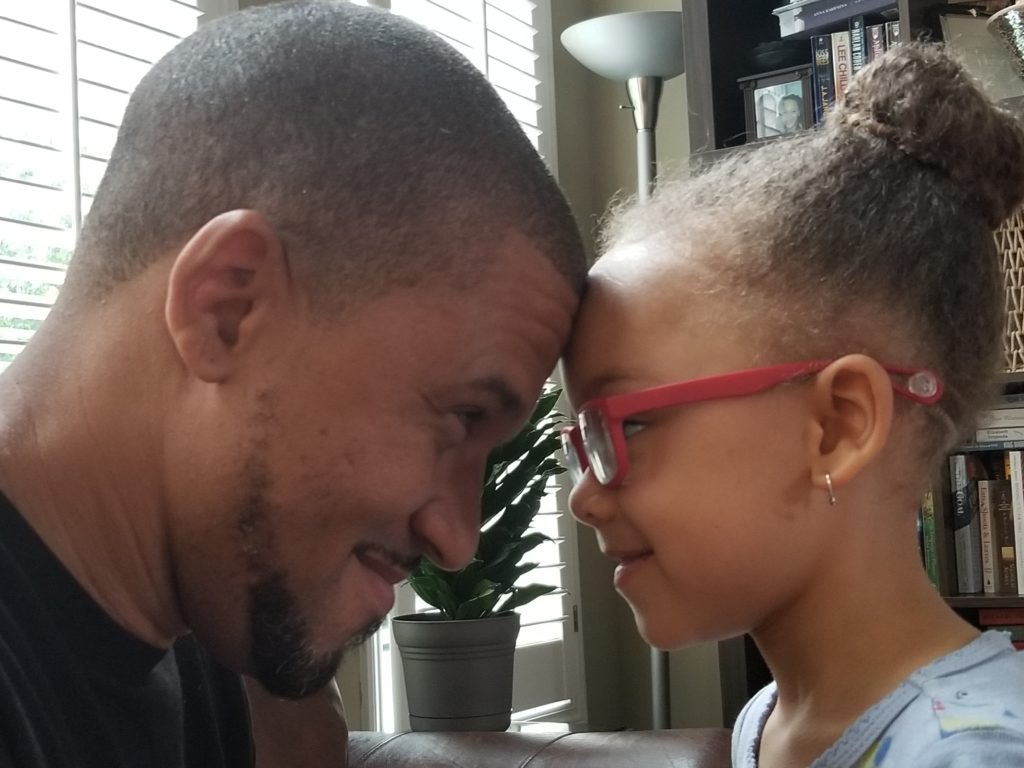
It was a tough moment. I mean, I’m the mommy – I’m supposed to be there to comfort and console and give the hugs and kisses and first aid! Besides, I’ve always handled the medical stuff, whether it’s the routine checkups or emergencies. Medicine is my other home, so I’m comfortable in that space, I speak the language, I know how to navigate the system. So I’ve always been the one to handle these situations. Well, not this time.
I learned an important lesson that day. My husband is a fully participating father, one who could stop everything he was doing and handle an emergency. He’s the one who distracted her so she wouldn’t cry while her head wound was being washed out. He’s the one who kept sending me updates by text because he knew I was worried. He’s the one who knew to loosen her hair elastic so the doctor could use her hair to pull together the edges of the wound once the glue was applied. He came home with the instructions for me about how long to wait before I washed her hair again.
Auntie A knew how to apply pressure and stop bleeding. She handled the emergency and the other kids racing around trying to “help”. She called in my husband and comforted my son (who felt incredibly guilty for causing his sister’s accident). She kept the big kids while he took the baby to get fixed up.
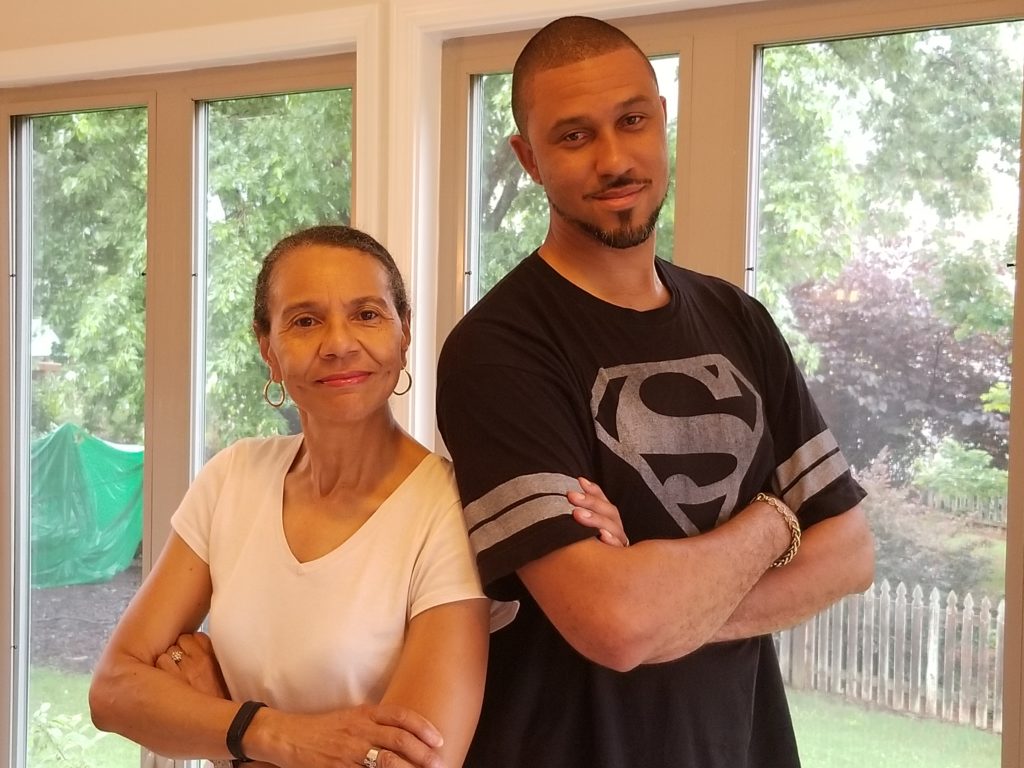
My back up is incredible. Would I have rather been there to take care of my five year old during the crisis? Absolutely. But knowing that when something goes down that my husband is completely capable of handling it is a salve to my soul. It’s hard to leave your children (sometimes). But when you do, the biggest fear is that something scary will happen to them while you are away. And things will happen, because kids are kids. The fact that it doesn’t have to be me that’s there in the case of every emergency brings peace. What a gift!
But I need to tell the truth here. I haven’t trusted him to be fully involved. Awhile ago, I read something about the concept of a “primary parent” and I attached myself to this concept. You know what that made him? Secondary. That thinking was damaging, both because it left him as less, and because it placed the burden of parenting on me more than him. I’m not talking about the actual daily work of feeding and growing the kids. It’s the psychic burden of feeling that the load needed to be carried alone, maybe with his help sprinkled around like some pepper on top. It’s too heavy!
Maybe you are a single parent and that burden is yours because their other parent isn’t involved. But I think that whether we are single or married, many of us do what I’ve been doing – shouldering a burden alone that we don’t need or want to carry. I got into the mindset when I was breastfeeding that the baby care was all on me, which then in my mind transferred to child care and now preteen care being mine alone. When I really pay attention though, my husband has been right there, training their character, teaching life lessons, encouraging play and creativity and bringing his gifts to the table. The ones I don’t have. And I’ve been missing it.
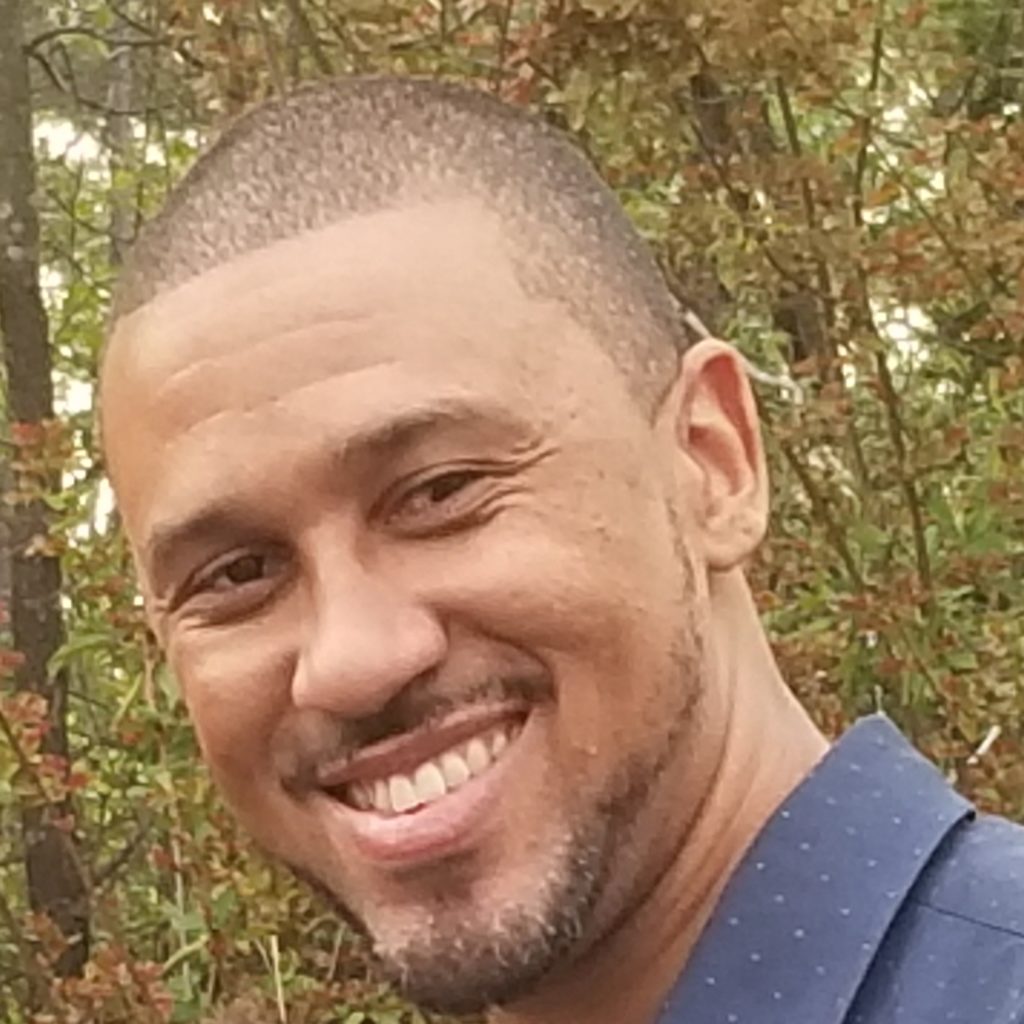
Is it possible you’ve been missing your support that’s been there all along? Whether it’s your spouse or another person in your life, is there someone there who has been helping you shoulder the weight and you haven’t noticed? Or maybe they’ve been willing to be more involved and you haven’t wanted to trust them with the responsibility. But aren’t you tired? That’s what trying to carry the psychic weight of raising four children alone has been doing for me. And the truth all along has been that I’ve never been alone; I just wasn’t willing to see the support I had.
So I’m learning. And growing. I’ve started keeping a new kind of list, one that remembers the gifts and contributions he’s making all the time that I would have missed before. His work, his gifts, his strengths: they’ve always been there. I’m the one who is seeing them for the powerful and beautiful thing they are, how my kids need him to balance my influence, and how much better I am when I trust him. It’s a lesson that’s been a long time coming. It’s not easy, but I’m holding on to it.
How about you? Who is your home base? How can you see your help and watch it grow? Please share in the comments below!

Comments2
GREAT POST!!!
GREAT POST!!! THANKS FOR SHARING!